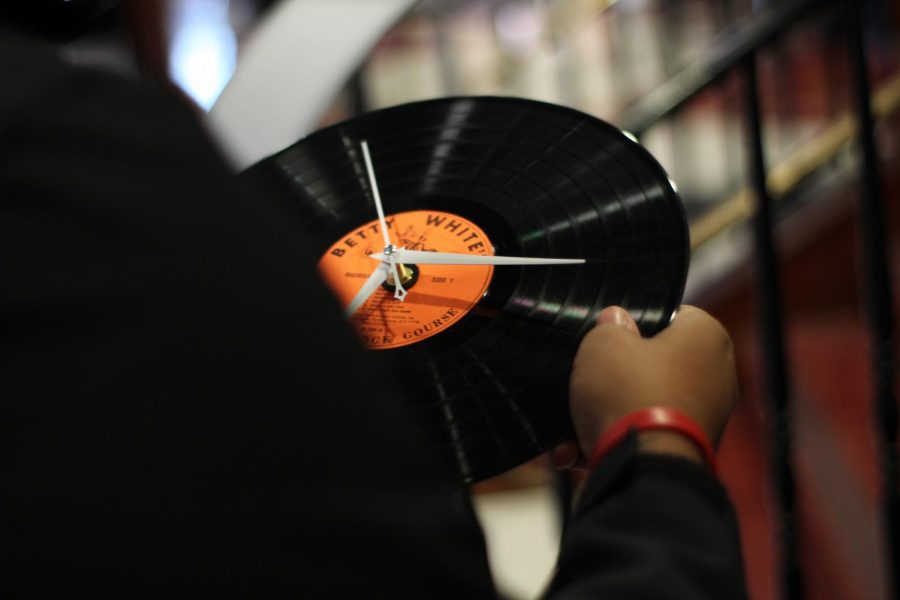Students learn about upcycling, sustainability in DSU information fair
November 13, 2019
Visitors to WKU Sustainability’s Market on the Avenue event learned about lowering their impact on the environment, saw the benefits of upcycling and made clocks out of unused vinyl records.
“We are hoping to teach WKU how to have a greener holiday through giving memories, giving their time and skills,” said Courtney Martin, assistant coordinator for WKU Resource Conservation.
Martin also spoke about “upcycling,” which involves taking objects which are unwanted or unused and using them to create new items.
Visitors to Martin’s booth made clocks out of old vinyl records which were donated by WKU Libraries.
“This is one way we’re demonstrating how items can be upcycled into something functional,” Martin said.
Cara Walters, graduate assistant for the Office of Sustainability, was leading a booth focusing on ways to be economically sustainable. Walters said economic sustainability is an important aspect of sustainability.
“The economic pillar is basically ensuring that we’re not spending our money in a way that is irresponsible, we’re spending it in a way that makes sense for economic regulations, environmental regulations,” Walters said.
Walters also said it is important to know how much is spent, since overspending on sustainability is not efficient.
“We also have to be mindful of the amount of regulation that we put into effect,” Walters said. “We still have to have controls over the environment.”
Also participating in the fair was Madonna May, sustainability coordinator for the WKU Restaurant Group. May said one of the sustainable focuses of the restaurant group is on bringing in more locally grown produce.
“We’re trying to get more local produce from local farmers, that way everybody has a chance locally to participate here on campus,” May said.
May said the restaurant group, especially Fresh Food Company, is currently focusing on producing compost.
“We have already composted over 300,000 pounds in a year and a half,” May said. “We try to recycle as much as we can, even with the other brands. A lot of it is working with the community.
Reporter Jack Dobbs can be reached at [email protected]. Follow him on Twitter at @jackrdobbs.















